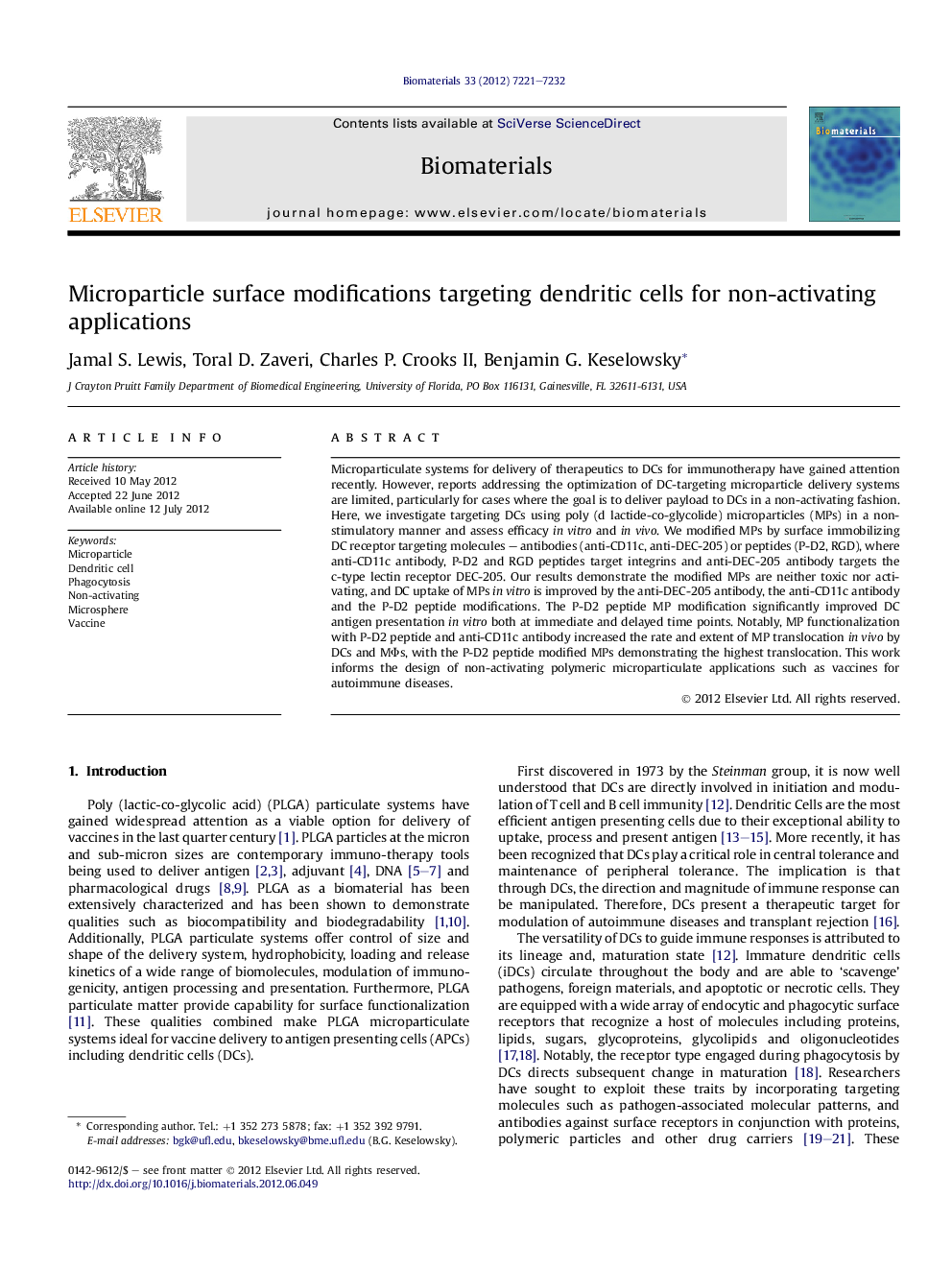| Article ID | Journal | Published Year | Pages | File Type |
|---|---|---|---|---|
| 10228822 | Biomaterials | 2012 | 12 Pages |
Abstract
Microparticulate systems for delivery of therapeutics to DCs for immunotherapy have gained attention recently. However, reports addressing the optimization of DC-targeting microparticle delivery systems are limited, particularly for cases where the goal is to deliver payload to DCs in a non-activating fashion. Here, we investigate targeting DCs using poly (d lactide-co-glycolide) microparticles (MPs) in a non-stimulatory manner and assess efficacy in vitro and in vivo. We modified MPs by surface immobilizing DC receptor targeting molecules - antibodies (anti-CD11c, anti-DEC-205) or peptides (P-D2, RGD), where anti-CD11c antibody, P-D2 and RGD peptides target integrins and anti-DEC-205 antibody targets the c-type lectin receptor DEC-205. Our results demonstrate the modified MPs are neither toxic nor activating, and DC uptake of MPs in vitro is improved by the anti-DEC-205 antibody, the anti-CD11c antibody and the P-D2 peptide modifications. The P-D2 peptide MP modification significantly improved DC antigen presentation in vitro both at immediate and delayed time points. Notably, MP functionalization with P-D2 peptide and anti-CD11c antibody increased the rate and extent of MP translocation in vivo by DCs and MΦs, with the P-D2 peptide modified MPs demonstrating the highest translocation. This work informs the design of non-activating polymeric microparticulate applications such as vaccines for autoimmune diseases.
Related Topics
Physical Sciences and Engineering
Chemical Engineering
Bioengineering
Authors
Jamal S. Lewis, Toral D. Zaveri, Charles P. II, Benjamin G. Keselowsky,
